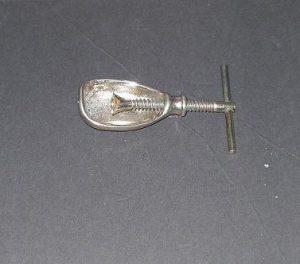This is mark Joseph “young” blog entry #218, on the subject of Versers Resume.
With permission of Valdron Inc I have now completed publishing my first three novels, Verse Three, Chapter One: The First Multiverser Novel, Old Verses New, and For Better or Verse, in serialized form on the web (those links will take you to the table of contents for each book). Along with each book there was also a series of web log posts looking at the writing process, the decisions and choices that delivered the final product; those posts are indexed with the chapters in the tables of contents pages. Now as I am posting the fourth, Spy Verses, I am again offering a set of “behind the writings” insights. This “behind the writings” look may contain spoilers because it sometimes talks about what I was planning to do later in the book–although it sometimes raises ideas that were never pursued. You might want to read the referenced chapters before reading this look at them. Links below (the section headings) will take you to the specific individual chapters being discussed, and there are (or will soon be) links on those pages to bring you back hopefully to the same point here.
There is also a section of the site, Multiverser Novel Support Pages, in which I have begun to place materials related to the novels beginning with character papers for the major characters, hopefully giving them at different stages as they move through the books.
This is the first mark Joseph “young” web log post covering this book, covering chapters 1 through 21.
History of the series, including the reason it started, the origins of character names and details, and many of the ideas, are in those earlier posts, and won’t be repeated here.
Quick links to discussions in this page:
Chapter 1, Kondor 97
Chapter 2, Brown 97
Chapter 3, Slade 93
Chapter 4, Kondor 98
Chapter 5, Brown 98
Chapter 6, Slade 94
Chapter 7, Brown 99
Chapter 8, Kondor 99
Chapter 9, Brown 100
Chapter 10, Slade 95
Chapter 11, Brown 101
Chapter 12, Kondor 100
Chapter 13, Brown 102
Chapter 14, Slade 96
Chapter 15, Brown 103
Chapter 16, Slade 97
Chapter 17, Brown 104
Chapter 18, Kondor 101
Chapter 19, Slade 98
Chapter 20, Brown 105
Chapter 21, Slade 99
I was bringing Joe in from the end of the second book, when he was floating in space, and anticipating a moment when he would realize that he and Slade had both just left Derek a few minutes before. I also wanted to color Kondor as the sort of person who would deduce things about the indigs from the way their world was designed.
I had never wanted my versers to spend too much time with Merlin, as this would make them too much the same. I had an advantage, in that I’d established Merlin’s usual technique as beginning with a long stretch of exploration of what the student already knew, so if I could get them out soon enough none of them (Derek, Slade, or Shella) would be pushed toward being Lauren’s clones. Now, though, I had another reason to end it quickly, as I wanted Slade to join Kondor in Slade’s first chapter, so I was going to have to use Derek as the bridge to get Slade out.
It seemed I was also going to have to get Derek out; taking Slade and Shella at this battle and leaving Derek with Merlin and Bethany was going to decimate my dome attack team, and there wouldn’t be much more they could do against the vampires. I needed to make it seem as if with the loss of Slade and Shella they won the war, that there was nothing much left to do, but then I would also have to verse out Derek. This gave me another problem: Bethany. I’d established that Merlin was a verser, but I’d also established rather satisfactorily that Bethany was not. I could make her one, but didn’t want to do that, particularly as my wife always found her annoying. On the other hand, one of my sons (Adam, I think) liked the character, and I felt I needed to give her closure. Thus I needed to establish a good ending for her.
The end of the world seemed a good way to satisfy that. I kept it simple; I wanted people to know what was happening, but didn’t want to dwell on it.
I still needed to get Derek out of there, so he lost that battle.
The point was to bring Bob to Kondor’s world before anything else happened, without making it seem I was stalling Kondor. Thus I covered Slade’s disappearance from the final battle of the vampire future world through Derek’s eyes, and then shifted to a very brief recounting from Bob’s perspective and brought him abruptly to somewhere in the compound.
This chapter largely brings everyone up to speed on the characters, and aligns the stories so we know the sequence of events from the previous books.
The verse is something modern people accept fairly easily, but Shella is from a medieval fantasy world, and is going to be a bit overwhelmed by it all even now. She is to some degree struggling to absorb it all; she bites her lip as she considers how to respond to Joe Kondor.
Shella’s blush is there because of course she’s kept track of the days–guilty as charged. I have not, and I’m not sure whether I could reconstruct them with any accuracy, but hopefully it won’t matter.
Adrus is the name of the first month on the calendar I created for my D&D game world; Zarn was just a word I pulled out of the air to provide what might have been a month on some other calendar.
Joe takes a very humanist/agnostic view of love: it serves a biological function of creating families for the production and rearing of children, for the continuance of the race. It is thus irrelevant in the lives of versers, because they will never die and do not need to replace themselves.
I grew up with computers, sort of, but I think my attitude to computers in cars is still somewhat like Bob’s. I understand how points and plugs and distributors work, but computer-controlled fuel injection I’ve never understood.
At this moment I decided that the cameras would be mounted on the guns, so the operators could use them to aim. That would have consequences later.
Derek is now experiencing the “stage two” arrival in which reality and dreams combine in awkward ways until you manage to awaken. I have to do it for every character at least once, some more than once, and this was his turn.
The consideration of what can be learned about the world from the existence of leaves was something I was devising kind of in reverse of what I knew. That is, I knew that leaves had the patterns and colors they did in order to capture and process light efficiently, and thus if there were leaves in such patterns and similar colors it would be reasonable to infer that that was their function.
I don’t know the difference between a forest and a jungle; I’m thinking that I should ask someone who knows, but I don’t really need to know to tell this part of the story. I eventually did ask someone with a degree in ecology, but she was not certain either.
Bob’s definition of “people” as having discovered swords is probably pushing back toward the humorous side of the character.
That Shella misses the connection to Derek is perhaps awkward, as she was there when Bob met him, but they probably think about him in different ways, and she also has the connection that in her world of origin people said that Slade had elfin blood, so that connects him to the fairy people in her mind.
I had gotten to what was chapter 77, Slade 118, alternating rather consistently Kondor-Brown-Slade, but I was struggling with a couple of issues. One was that Derek’s story had a lot of detail best managed in small chapters, and that meant that his story was moving very slowly in the book. Another was that I had Bob and Joe in the same world, so I was telling their story two chapters in a row every time, even though it was a slow story, more an intellectual conflict, and I didn’t always know what was happening. When I reached that point, I realized that I could resolve a lot of this if I backed up and moved all the chapters around and renumbered them so that Derek’s story was told twice, in a Kondor-Brown-Slade-Brown sequence. It was a lot of shuffling of text (thank the Lord for word processors), but Derek’s chapters through somewhere around Brown 119 got moved forward, including this one.
Mlambo was the surname of a college peer of mine, Lyson Qorani Mlambo. I enjoyed saying his name because of the unusual (for English) consonantal combinations–the “Q” represented a click created by pulling the tongue from the roof of the mouth. I used the surname for the commander; I then used the first name as the surname of one of the other officers. Lyson was a student from somewhere in Africa.
It was about here that I formed the idea of a race war, that this bunker belonged to the “black” side.
I had done the energy release for Derek because even though it was supposed to be a body morphing transformation, the mass difference would need some kind of explanation; but I realized as I was working through it that the mass/energy conversion was as big as Derek saw, and thus that even without the magic some of that mass had been shunted into some other dimension or something. Thus I had created the trick that he had to restore a significant amount of energy through caloric intake in order to reach and retain his larger size, and at the same time attempted to defuse objections that he couldn’t possibly gain that much energy from eating a single meal no matter what it contained.
I created the Reptile House team mostly of people I knew, several of them players in the game. It was inspired because Ed Jones sometimes called himself Chameleon, and particularly when he was wearing his army reserve camouflage outfit; I had taken to calling myself Sea Turtle, a reference to something of a joke for which one took a test to see whether one could “think clean” when asked a set of questions which were suggestive of lewd answers but also had clean answers, and I was officially a Sea Turtle. Thus I formed the team with Ed as the field commander Chameleon and me as the unit commander Sea Turtle; the others will be introduced as they appear.
The idea of calling the whites “ghosts” had a lot of appeal here. I needed a racial slur that was not a racial slur in our world, and everyone imagines ghosts to be pale and thus white, so it fits.
There is also some of the discriminatory attitude that American blacks faced mostly in the south: Mlambo is concerned that he can’t provide separate facilities for the ghosts, because of course whites would not be permitted to use the same facilities as blacks.
This world was designed for The Third Book of Worlds. The opening can drop the player character anywhere in the world and then have the pickup team there within forty-eight hours. This is ultimately explained in the story. The world is called Why Spy, and is designed to facilitate playing plots from spy movies and similar sources, making the player character the secret agent. “C” is my version of Bond’s “M” or Smart’s “Chief”. It actually stands for “Claude”, and he’s a character from another world as well. He is based on the generic British gentleman in the secret service, no particular individual.
“Iguana” is a college friend of mine, “Big Brother” Archie Bradley. It’s more for the physical description, although the character of being a nice guy despite a formidable appearance is part of it.
“Python” is based on Joe Kondor, who in turn is not really based on anyone. The idea is that this is Joe’s divergent self. I put him here intentionally, to make a connection that this was a parallel earth, and to create a surprise situation.
“Gecko” is Richard Lutz, whom I never met. I make him a tech head here, and he’s the guy who has the portable scriff detection equipment, plus the main communications gear. I was more than once told that he had a Video Cassette Recorder (VCR) with no buttons, and accessed the functions by knowing which exposed wires to cross.
“Kimodo Dragon” was the transport officer; I made my son Ryan the model for this, and gave him the conceit that he could drive or fly any vehicle.
“Cobra” was a divergent of Chris Jones, largely because he had studied some martial arts and I wanted to intensify that and make him strong and fast. In play we sometimes get the Reptile House team working with the player character in adventure situations, but I wasn’t sure whether I was going to do that here. Chris, of course, was the primary model for Bob Slade, although Chris has dark hair, not blonde, and never was an auto mechanic or an Odinite, even in the game. He is also the player behind the character Whisp, detailed in an appendix in Multiverser: Referee’s Rules.
Originally I had written “shooting knock-out darts at guys with guns didn’t sound like a clever plan,” but I realized during the major edit that that was exactly the plan which led to the development of the arrow drug. I decided that it made a difference that it was “several guys” and that they had “automatic weapons” instead of “guns”, and also decided that “needles” was a better description of the arrows here.
A lot of Joe’s prejudices emerge here. The first one is that religion is a mark of a lesser intellect, and thus Bob must not be that bright if he thinks he’s one of Odin’s chosen warriors.
Joe also thinks that the fact that Bob did not notice that everyone in the other room was black indicated that he was prejudiced–that not noticing someone’s color was indicative of discrimination based on race. Bob, of course, thinks that it’s perfectly natural, and there’s no particular reason he should have noticed something like that; black soldiers are common, and it’s because a lot of blacks see it as a good economic choice.
Lyson’s prejudice is also shown when he reacts to Bob speaking to him.
On the edit, I seriously considered altering “If Slade didn’t understand why noticing the color of someone’s skin was important,” to read “If Slade didn’t understand why not noticing the color of someone’s skin was racist,” but I decided that was too strong and probably not really the way Kondor would have thought it.
The problem of Derek attempting to fly through the turbulence created by the helicopter blades was a sudden realization, a recognition of the realities of the situation.
I knew all along that he was in the Amazon rainforest; this was the first time I said so.
The rapid consumption, digestion, and metabolizing of the high-energy food and drink was my best idea for the transformation. I might have gotten some of this from episodes of The Flash, the 1990s version, in which Barry Allen consumes large quantities of food to maintain his energy level after running, but I don’t know that I ever recognized the connection.
Shella very much reveals her girl side, prettying the barracks room for their brief stay with knick-knacks and a comforter. She also predictably complains when Bob starts polishing his dagger on their good comforter.
I didn’t yet know what they were supposed to do, or going to do, while they were here. I’ve got them exploring the possibilities.
“The clock” is of course Big Ben. It’s probably the most recognizable landmark in London, at least in an international sense. Most Americans would not recognize most of the truly significant buildings and other landmarks in the city, but the clock is known.
Derek’s age is of course problematic from any perspective. Like versers, he doesn’t age, so he kept his twelve-year-old appearance into his twenties; then he had the rare experience of returning to pre-born and growing up again, this time reaching about seventeen before dying. So he is probably around fifty by years lived, but it would be difficult to say how old his body appears to be.
This is really the standard setup for the game world: British Intelligence knows that versers are dangerous, and that they have a lot of advantages in the spy game, and so recruits them; C does not want them working for anyone else, and will do whatever it takes to prevent that. I had one player get very upset about not being given a choice in the matter, but usually they like it and go with the flow.
Shella challenges Bob’s self-perception in this chapter. Most of us have ideas about ourselves, that we are this and not that, and sometimes those ideas are contrary to the evidence.
Joe is trying to figure out what’s happening, and at this point I didn’t know how he was going to do that; but I figured he would try to include recovering his gear in the process, and that meant going outside.
The name Kyler Bryant borrows from one of my sons; I thought it likely I would use this passport at some point, so I detailed it.
The driving training is there so that if I have a use for it in the future I’ve got the foundation for it here. I don’t know when I’ll use it.
The recognition that Derek is lonely is a fairly obvious one, particularly given that in the last world he was fighting alongside his odd collection of friends, and in the world before that he was part of a close family for a long time. I have not considered yet how to address it, because things are about to happen for him.
I didn’t waste names on the other passports because I guessed I would not need them, and knew I could give them names later if necessary.
About halfway through the read-through edit (after chapter 75), probably because I had just written chapter 143 (Brown 159) in which Derek arrives in the final world, it occurred to me that Derek’s gear had been neglected for most of two decades, and the bicycle in particular would need some maintenance. I came back to this chapter and added parts about cleaning and repairing his equipment, and letting Gear examine his things. I had originally written the part about them developing an analog of his drug, but at this point I added the provision of several small containers of the stuff.
I started to play with the idea that Kondor’s cover story might make him someone people feared; I don’t think I ever decided about that, but it’s not something he could ever ask or anyone would ever say.
I also needed to find a way for him to learn what was going on in this world, and it made sense that there would be reading materials somewhere which would include the official propaganda.
By having Joe stay late in the library and Bob fall asleep, I saved myself a useless chapter in which Joe stops to tell Bob to go to sleep.
I didn’t know what I was going to do with my characters once they left the bunker, so I figured an early morning attack would trap them here for a bit and I could work through the situation here.
When I was in college for a while I had a night job, and so I often ate in my room. I was stocked with a toaster and a percolator coffee pot in which I heated water, and I had instant oatmeal, instant soup, and toaster pastries which I tended to eat because I was at work during dinner and asleep through breakfast. I also caught supper at any of several fast food places in the area (Gino’s was both very convenient and much preferred at the time), but I lost a lot of weight. In any case, the idea of instant oatmeal and toaster pastries as something Derek could easily make for brunch was from my experience.
The high rise scenario is from the Why Spy game world. It was an experimental approach in which the scenes were organized as they would appear in a movie, and the referee created the encounters and picked the floors as the players moved through the building. It was intended to prevent the possibility that someone would go directly to the bomb, making it play more like the action movies Die Hard or Under Siege. It undoubtedly owes something to True Lies, as well.
I had to work out myself what it was that Bob could notice, and how to turn that to a useful bit of strategic analysis. I had to figure out what it was the white army was trying to do, and how that was supposed to work.
I realized that I had created the weakness by tying the cameras to the guns: if the whites could get the guns focused in specific directions, they could create a blind spot. That, I figured, was the best guess for what they were doing, so I went with it.
This has been the first behind the writings look at Spy Verses. If there is interest and continued support from readers we will continue to publish this novel and the behind the writings posts, and prepare the fifth novel to follow it.









